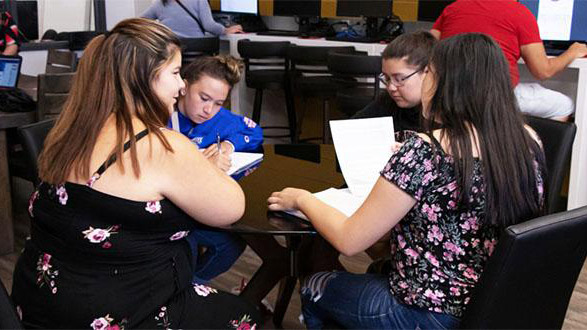Local resources available for Indigenous peoples
 CREDIT: FANSHAWE COLLEGE
CREDIT: FANSHAWE COLLEGEThe institute of Indigenous Learning at Fanshawe College.
“There is no power for change greater than a community discovering what it cares about,” reads a quote by Margaret J. Wheatley.
Today, Canada is continuing to learn more and more disturbing news regarding residential schools. Much unfortunate information is being confirmed, from school graves to the horrific abuse of Indigenous children during their time at these institutions.
Together, Canadians mourn these catastrophic events. Due to feelings of disgrace and remorse, many individuals are “cancelling” annual Canada Day celebrations.
Several local institutions have either established new programs or have expanded their programs, in an effort to improve support for the Indigenous people. Here are a few local resources to explore and utilize.
- N’Amerind (London) Friendship Centre Inc.
They are committed to serving Indigenous people, specifically, Indigenous people living in urban settings. Their purpose is to elevate all aspects of well-being from physical to emotional.
- Southwest Ontario Aboriginal Health Access Centre (SOAHAC)
- Atlohsa Family Healing Services
At this location, you can expect programs like Biigajiiskaan: Indigenous Pathways to Mental Wellness, homelessness prevention, support groups, and many others.
Atlohsa is also responsible for organizing numerous events within their location and throughout the city.
- Native Inter-Tribal Housing Co-Operative (CHF)
CHF Canada organizes a system to accomplish certain needs of the Indigenous community. Education, insurance asset management, advocacy and enterprise services are a few of the services included in the system.
- First Nations Counselling Portal Ontario (FNC)
Counselling support at FNC aims to encourage and support their clients in making beneficial decisions.
- Nokee Kwe
The staff at Nokee Kwe strive to implement systems to meet the progressive demands of the Indigenous community.
“We have many resources and are constantly looking for ways to help anyone and everyone, but specifically the Indigenous people,” explained program coordinator, Deb Armstrong. “Whether it is for employment or to obtain some sort of certification for training and education, we want to help.”
Armstrong is also in the process of organizing programs to help encourage Indigenous women to partake in male-dominated professions.
- Educational Institutions
At Western University, there are resources such as the Office of Indigenous Initiatives, the Indigenous student center, as well as Indigenous learning spaces. They prioritize cultural enrichment, student academic and career support, and youth and community outreach.
The Institute of Indigenous Learning is a support center aimed to offer academic services, social, cultural, and recreational activities for First Nations students at Fanshawe College. They provide multiple educational resources to help students succeed in college.
The city is undergoing several proposals and projects within these resource centers to help better serve the Indigenous people. Across all noted resources, their mission remains consistent: they are looking to serve you. These centers are financed to be able to implement events and programs to help Indigenous people succeed with their goals. Feel free to contact any of these resource centers and they will gladly assist you.
















